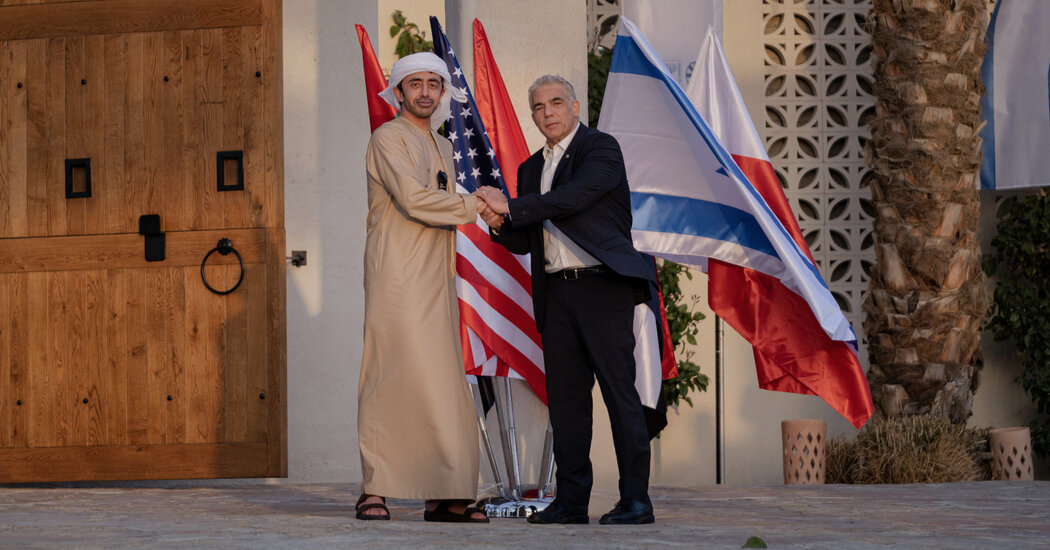
CAIRO — Egypt, which decades ago became the first Arab country to reach a peace treaty with Israel, was attending the summit on Monday in hopes of holding on to its traditional position as the bridge between Israel and the Arab world, a role that has become less critical over time with the emergence of other normalization deals.
Egypt is also struggling with a deepening economic crisis, worsened by the years of pandemic; a sharp drop in tourism; and now a surge in food and energy prices brought on by Russia’s war in Ukraine. So it may also be looking to shore up any alliances that could offer an avenue for some economic relief.
Still, Egypt was not on the original list of Arab nations attending the summit and the confirmation that its foreign minister, Sameh Shoukry, would join alongside Arab counterparts from Bahrain, Morocco and the United Arab Emirates, came instead from Israel on Saturday, a day after the meeting was announced. That was seen as a sign of its reluctance to attend.
“The Egyptian stance is based on not making free concessions,” said Mustapha Kamel Al-Sayyid, a political science professor at Cairo University, adding that the Emirati-led vision that guided the normalization agreements reached in 2020, known as the Abraham Accords, did not align with the decades-old “land for peace” principle that has guided Egyptian policy on Israel.
While those agreements signed by Bahrain, Morocco and the U.A.E. aimed to normalize relations with Israel and foster friendly ties, Egypt’s approach to normalization remained delicately connected to mediating and resolving the Israeli-Palestinian conflict.
As the United Arab Emirates opened its doors to tens of thousands of Israeli visitors over the past year, a prominent Egyptian singer and actor who was photographed with Israeli celebrities at a party in Dubai faced an onslaught of criticism, a lawsuit and the threat of suspension from a professional union upon returning to Cairo.
“Perhaps the U.A.E. thought that this was the right moment to pressure Egypt to participate in light of its increasing debt and need for economic aid.” Professor Al-Sayyid said.
In the past month, Egypt, where about a third of the population survives on less than $2 a day, has had to cope with shortages in wheat that it predominantly imports from Russia and Ukraine, and confront public outrage at rising prices of staples such as oil, sugar and rice. In that short time, the country has also had to try to counter the flight of foreign capital, devalue its currency and request financial assistance from the International Monetary Fund.
Against this troubled backdrop, the Egyptian president, Abdel Fattah el-Sisi, had a series of meetings this month that appear to have led up to the decision to finally participate in the foreign ministers’ meeting in Israel.
Last week, he hosted a summit in the Red Sea resort of Sharm el Sheikh with the leaders of Israel and the United Arab Emirates. Three days later, he traveled to Jordan, where he met with three Arab heads of state, and earlier in March, he paid a visit to Saudi Arabia.
Official Egyptian statements indicated that Mr. el-Sisi had broached issues related to energy, food security, trade and regional stability.




